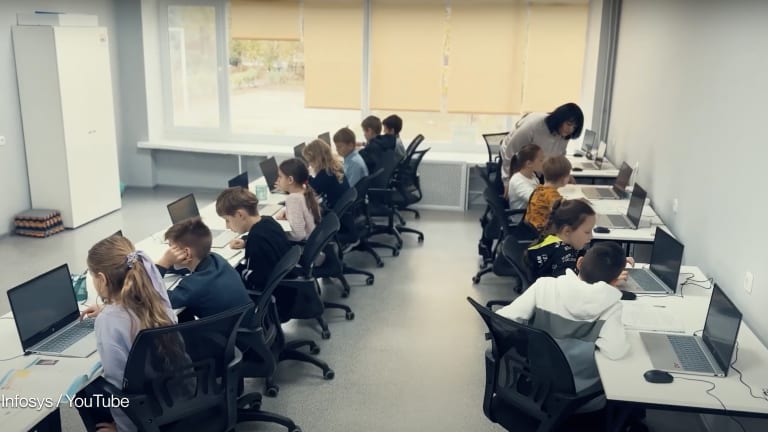Building the practice to promote MDGs with the private sector

Since its inception in 2008, the Business Call to Action has become a leading multi-stakeholder platform for tackling poverty and supporting private-sector efforts to generate inclusive business models, unique as they can help to meet the Millennium Development Goals by integrating poor people into value chains as producers, employees and consumers.
The MDGs are a key component of the BCTA agenda, providing the private sector with a greater awareness of the essential role business can play in alleviating poverty. Businesses are now taking concrete steps to reconsider their bottom lines and move beyond philanthropy toward innovative business models in agriculture, financial services, energy and health. Their investments are paying off: inclusive business models are enabling companies to explore new markets and scale-up innovations that raise poor people’s incomes while demonstrating social impact and providing real economic returns.
So far more than 95 companies worldwide have responded to the call, making commitments to improve the livelihoods of millions through commercially viable business ventures that engage low-income people as consumers, producers, suppliers, and distributors of goods and services. Just as the MDGs reflect a multi-dimensional approach to tackling poverty, our commitments reflect the ways businesses can promote economic growth and develop in a way that goes beyond corporate social responsibility to achieve genuine sustainability.
As we move toward 2015, there is a growing understanding of the role that the private sector can play in development. Businesses are increasingly mindful that investing in emerging markets can be profitable — in building a brand, attracting new customers, empowering employees, and building linkages within their value chains. Many companies, both large and small, have adapted to new marketplaces and contributed to MDG development objectives by designing products and services tailored to meet the needs of low-income communities, providing employee training, and developing innovative distribution strategies.
One of the strengths of BCTA is that as a global multi-stakeholder platform, we are working to sustain the momentum underway and provide visibility for inclusive business models. As a commitment-based membership organization, our member companies are not only encouraged to adhere to principles related to the MDGs, but go one step further by showing proof that the principles have translated into action in the form of concrete initiatives.
As a result of these efforts, evidence is mounting that the private sector is doing its part to improve livelihoods around the world. For example:
● Panasonic, one of Japan’s largest electronics manufacturers, has identified Africa and Asia as key markets for providing greater access to energy. The company plans to provide 1 million solar lanterns as a clean and safe light source to meet the needs of communities who can benefit from solar lamps and mobile phone chargers.
● To meet educational challenges in India, DataWind has worked to address the demands of poor communities who face very high illiteracy rates. The company recently rolled out the Aakash tablet, designed to deliver high-quality content at little or no cost. By 2017, DataWind expects to distribute 5 million tablets in India, with more than 80 percent reaching individuals at the base of the economic pyramid (living on less than $8 a day).
● CEMEX, a Mexico-based global building materials company, is working to ensure that more than 2.5 million people in Latin America have access to safe and affordable housing by 2016. The company is scaling up with expansion of its two signature affordable housing programs — the Assisted Self Construction Program and Patrimonio Hoy — in order to improve access to safe housing for families in Latin America.
As BCTA continues to support companies in reaching new markets and strengthens the case for more inclusive business models, it’s encouraging that by 2022 member companies have collectively committed to:
● Secure employment for 1.8 million people in 12 middle- and low-income countries.
● Provide 102 million people with access to financial services.
● Improve health care for 12 million people.
● Provide vocational training and capacity building opportunities to 3 million people.
● Improve the nutrition of 1.2 million people.
● Assist 40,000 farmers in improving their agricultural yields.
As the focus shifts to a post-2015 agenda with its forward-looking Sustainable Development Goals, we are fortified by the progress made in supporting innovative solutions to meet the MDG objectives.
We also recognize the ongoing challenges for the next generation. In order for inclusive business to continue flourishing, more collective action, policy advocacy at the country level and greater public-private collaboration will be needed. But we look forward to building on the progress of our member companies and providing enhanced knowledge based on measuring results. The data already shows that inclusive business not only protects the bottom line, but also provides fresh approaches to tackling poverty, scaling up investments in developing markets and encouraging other companies to take action.
Bring on the SDGs!
Aug. 18, 2014, marks the 500-day milestone until the target date to achieve the Millennium Development Goals. Join Devex, in partnership with the United Nations Foundation, to raise awareness of the progress made through the MDGs and to rally to continue the momentum. Check out our Storify page and tweet us using #MDGmomentum.
Join the Devex community and access more in-depth analysis, breaking news and business advice — and a host of other services — on international development, humanitarian aid and global health.
Search for articles
Most Read
- 1
- 2
- 3
- 4
- 5









